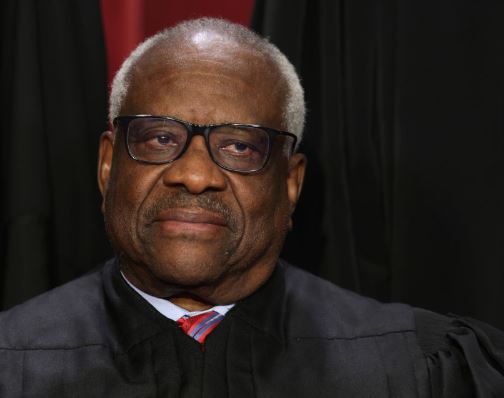Clarence Thomas Marks 70th Anniversary of Brown v. Board of Education with Controversial Remarks

Supreme Court Justice Clarence Thomas has sparked debate by stating that the Supreme Court “overreached its authority” in the landmark Brown v. Board of Education decision, during the 70th anniversary of the case. His comments have ignited widespread discussion about the implications and legacy of the historic ruling that declared racial segregation in public schools unconstitutional.
Speaking at an event commemorating the anniversary, Justice Thomas reflected on the 1954 decision, acknowledging its significance in American history while also critiquing the Court’s approach. “While Brown v. Board of Education was a pivotal moment in our nation’s journey toward equality,” Thomas remarked, “the Supreme Court overstepped its judicial role by dictating sweeping social policy, which should have been left to the states and their legislative processes.”
Thomas, known for his conservative judicial philosophy, has often emphasized a limited role for the judiciary, advocating for decisions that adhere strictly to the Constitution’s original intent. His comments suggest a belief that the Court’s intervention in Brown v. Board, though morally imperative, set a precedent for judicial activism that he finds problematic.
The Brown v. Board of Education decision, which unanimously held that “separate educational facilities are inherently unequal,” played a critical role in dismantling institutionalized racial segregation and advancing civil rights in the United States. The ruling overturned the “separate but equal” doctrine established by Plessy v. Ferguson in 1896 and mandated the desegregation of public schools across the country.
Justice Thomas’s remarks have drawn both criticism and support. Critics argue that his comments undermine the progress made through judicial action in securing civil rights and protecting minorities from state-sanctioned discrimination. They contend that without the Supreme Court’s intervention, segregation and inequality might have persisted much longer.
Supporters of Thomas’s viewpoint, however, argue that his perspective highlights the importance of maintaining a balance of power between the judiciary and legislative branches. They assert that social change should ideally come through elected representatives who are directly accountable to the people, rather than through judicial mandates.
The anniversary of Brown v. Board of Education serves as a reminder of the ongoing challenges in achieving educational equity and addressing systemic racism. Despite the historic ruling, disparities in educational opportunities and outcomes persist, prompting continued debate over the best approaches to ensure equality.
Justice Thomas’s comments contribute to the broader discourse on the role of the Supreme Court in shaping social policy and the limits of judicial authority. As the nation reflects on the 70th anniversary of Brown v. Board of Education, the conversation about the Court’s role in promoting justice and equality remains as relevant as ever.





